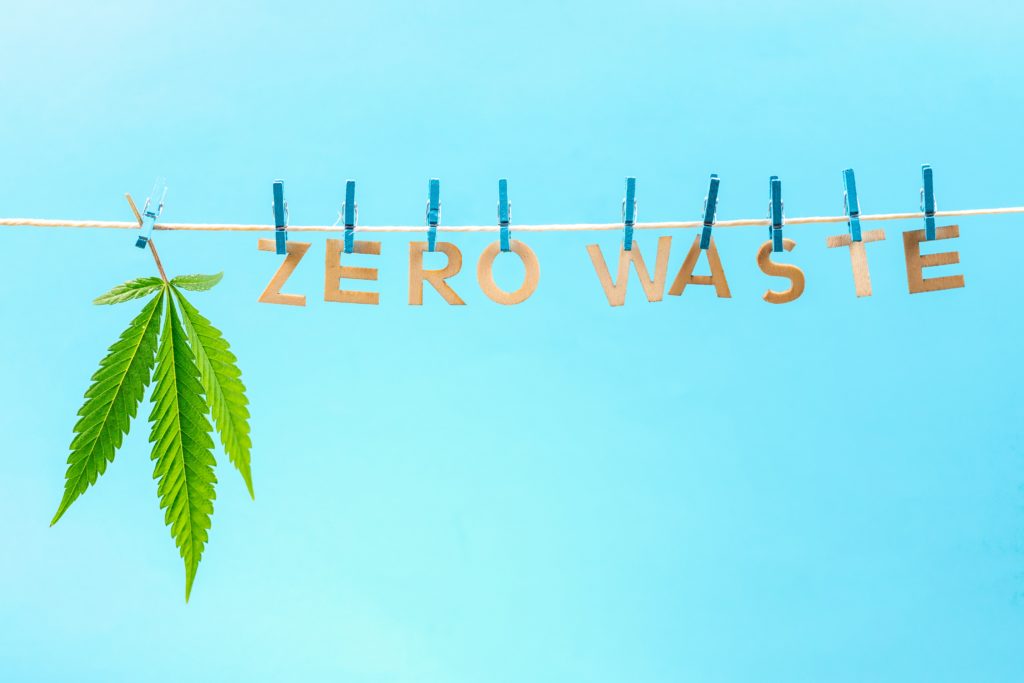Recent Posts
Archives
Categories

In recent years, many individuals have been utilizing the health benefits of high CBD content hemp. You likely already know that smokable hemp flower, CBD oil, and a number of other CBD products can help to alleviate chronic pain, anxiety, and a number of other symptoms. But did you know that the hemp plant also has a number of benefits when it comes to environmental sustainability?
So, how can growing hemp bolster the environment? Here are 5 reasons why hemp can be as good for the planet as it is for you!
#1 – Hemp makes sustainable products
On top of the CBD consumables that many people take for medicinal purposes, parts of the hemp plant can be made into many useful textiles and products. Hemp can easily be turned into paper, fabrics, and even high-strength construction materials, all of which rival the traditional components used to make these textiles. Clothing and shoes made from hemp fabric are often extremely high quality due to the durability of hemp fiber, and require far less processing than mass-produced fabric.
The best part of this? Hemp crops have an incredibly high yield in comparison to many other plants used to produce the same products. For example, one acre of hemp can produce the same amount of paper as 3 to 4 acres of trees. Additionally, products like hemp paper have a longer recycling lifespan that their counterparts. Whereas traditional paper can be recycled up to 4 times, hemp paper can be recycled up to 8 times. So, with less space, hemp farmers can produce more product that creates less waste.
Components of hemp can also be extracted to be refined into fuel. Extracting the high ethanol and methanol contents of hemp might help substitute our high level of fossil fuel use in the future. As fossil fuel becomes an increasingly less plentiful resource, hemp might become an even more important resource.
#2 – Hemp Reduces CO2
Like all plants, hemp has an amazing ability to take in CO2 from our atmosphere. Amazingly, hemp is proven to have a notably high ability for CO2 intake than many other plants. One acre of hemp can absorb much more CO2 than the same amount of trees, making it largely effective in helping clean up our atmosphere.
Hemp’s abilities for CO2 absorption also make it a net-zero fuel source. This means that fuels derived from hemp would not result in any excess CO2 added to the atmosphere when you account for the CO2 absorbed by the hemp when it was growing.
#3 – Hemp Does Not Require Pesticides
Unlike crops used to produce similar products, hemp does not require pesticides to grow. Pesticides are not only unhealthy when consumed, but can contaminate water and soil through runoff. Growing hemp in substitute for cotton, flax, and other crops can reduce the amount of pesticides in our ecosystems.
#4 – Hemp Protects the Soil
Hemp can add nutrients to the soil, as well as prevent soil erosion. The hemp plant is nutrient rich, promoting nutrient rich soil wherever it grows. When fallen leaves and debris from picked hemp crops decompose they provide an even more nutritious base for the next crop! On top of the nutrients present in hemp, the plant can also absorb toxins in its soil as it grows. This makes for not only highly nutritious, but purified soil.
Hemp roots also grow extremely deep, preventing soil erosion. Hemp’s 9-foot deep roots can even restore soil that was previously too eroded for planting.
Eroded and depleted soil is a huge issue facing farmers today. Oftentimes, land becomes unviable for crops simply because of the soil eroding and losing nutrients over time. Hemp promises a crop that can be seasonally planted for seasons on end. It can also act as a useful rotational crop, replenishing soil to provide a viable place for other crops to grow later on.
#5 – Hemp Doesn’t Need Much to Grow
Compared to other popular crops, hemp needs very little water to grow. Hemp only needs ⅓ of the water that cotton requires, making it a lower-impact crop for fabric and textile production.
The Promise of Sustainability
Overall, the hemp plant provides consumers with a promise of sustainability. On top of answering your personal health needs, it can also lead to a healthier environment. Shopping hemp products is always a great way to find sustainable alternatives to common products, such as clothing, accessories, and even food.
Operations like our Silver Rain farm located in Southern Oregon are contributing to a positive community of sustainable, American-grown hemp products.
*Disclaimer: These statements have not been evaluated by the Food and Drug Administration. This product is not intended to diagnose, treat, cure or prevent any disease.
